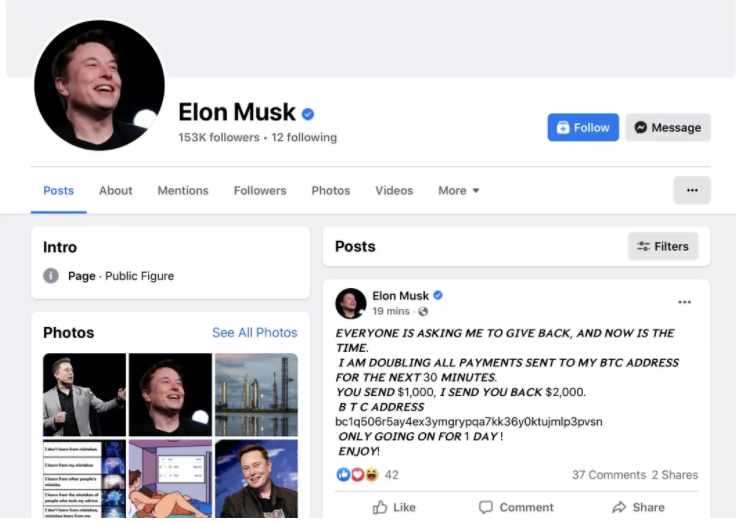On Sept. 15, Tim Dodd clicked on what he thought was a livestream on YouTube of SpaceX’s historic Inspiration4 launch from the Kennedy Space Center. What he saw next took him by surprise.
Dodd, a well-known space fan who created the YouTube channel Everyday Astronaut, landed a rare tour of SpaceX’s rocket facilities in Texas with CEO Elon Musk this summer. And it was just that footage Dodd saw. Someone had copied Dodd’s video to create fake livestreams of the launch, which was also part of a fundraiser for St. Jude Children’s Hospital. Scammers, Dodd says, were trying to trick people into donating Bitcoin on another site.
He said he’s reported at least two dozen cryptocurrency scam videos to YouTube, but they continue to pop up. “It just makes me feel so hopeless,” Dodd said.
Creating a fake live event video is just one way crooks are attempting to dupe crypto enthusiasts into giving away their assets. From fake giveaways to bogus investment sites, scammers use YouTube, Twitter and other social media sites to hook potential victims. Last week, Twitter flagged accounts that appeared to be tied to a Squid Game crypto coin and that bilked buyers out of more than $2 million by exploiting enthusiasm for the hit Netflix show. Scammers are even turning to dating apps to push these schemes.
Unlike a stolen credit number — an inconvenient but rarely troublesome issue — stolen crypto is basically gone. Many cryptocurrencies are decentralized, managed only by code running on a blockchain ledger.
Here are some ways to avoid getting duped on social networks:
Pay attention to the details

Recognizing a fake tweet, ad or video on social media can be tricky because scammers often steal images to give their ploys credibility. Sometimes they go as far as hacking verified accounts, creating the illusion of legitimacy by insinuating a well-known figure is involved. In 2020, hackers breached a handful of high-profile Twitter accounts to promote a cryptocurrency scam that promised to double the amount of Bitcoin sent to a specified address. Some of the accounts belonged to Musk, Amazon founder Jeff Bezos, celebrity Kim Kardashian and Joe Biden, who was running for US president at the time.
Look closely at the name of a website, the description of a YouTube video and the handle of a Twitter account. Little details, like a small misspelling, could be a red flag.
In March, the BBC reported a man in Germany was duped by a Bitcoin giveaway scam tweeted by a fake Musk account. The tweet asked people to send anything from 0.1 Bitcoin to 20 Bitcoin and Musk’s team would send back double the amount. The scammer created the illusion the account belonged to Musk by using it to reply to a real tweet from the Tesla boss. The scammer copied Musk’s profile picture and used a verified Twitter account. But if you look closely, the Twitter handle of the fake Musk account is @JoshyMcB not @elonmusk.
A Twitter spokesperson said using scam tactics on Twitter to obtain money or private financial information violates its rules. “We’re constantly adapting to bad actors’ evolving methods and have made improvements in combating cryptocurrency scams on the platform,” the spokesperson said. The company updated its verification policy, but Twitter has also mistakenly verified fake accounts before.


